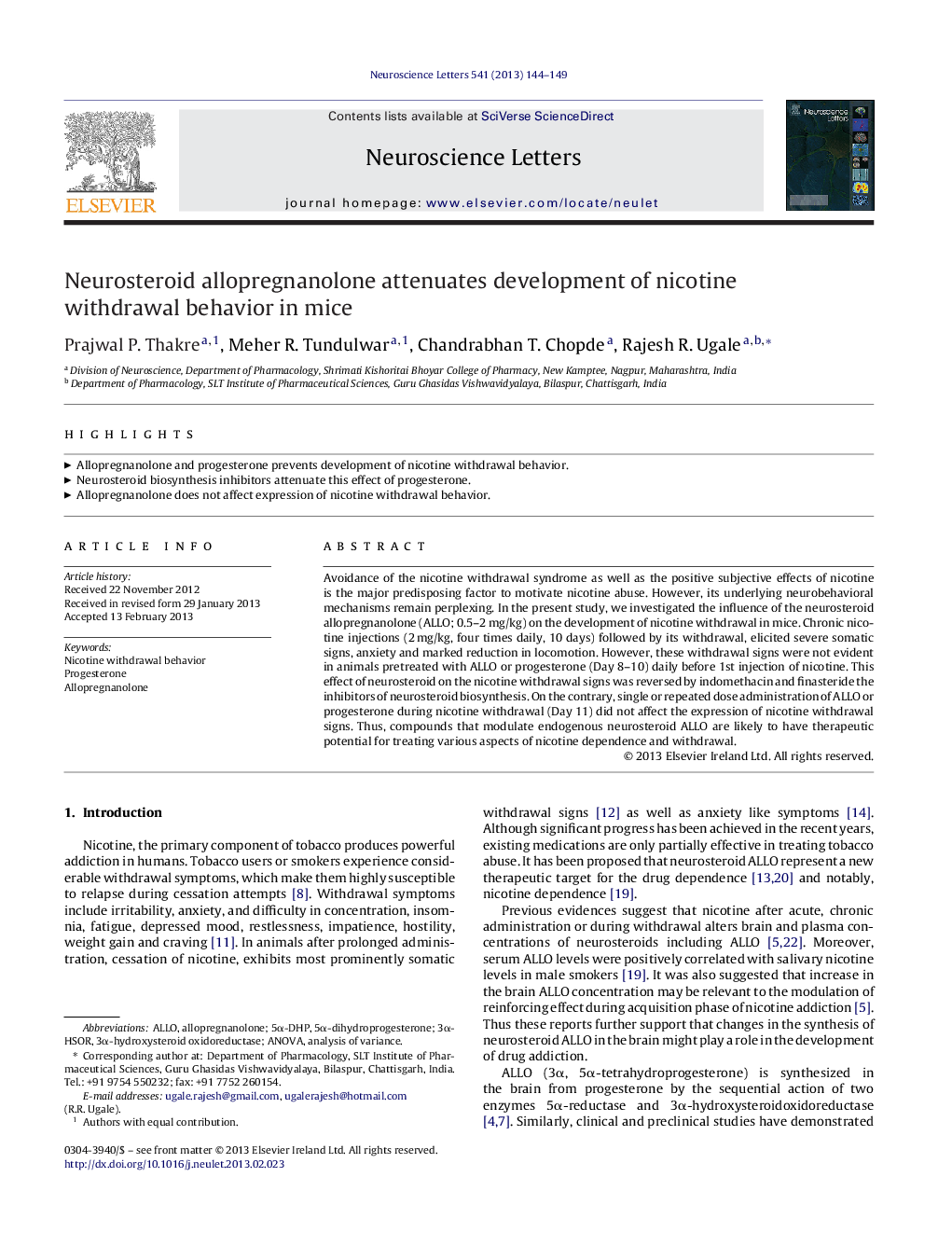| Article ID | Journal | Published Year | Pages | File Type |
|---|---|---|---|---|
| 6283121 | Neuroscience Letters | 2013 | 6 Pages |
Avoidance of the nicotine withdrawal syndrome as well as the positive subjective effects of nicotine is the major predisposing factor to motivate nicotine abuse. However, its underlying neurobehavioral mechanisms remain perplexing. In the present study, we investigated the influence of the neurosteroid allopregnanolone (ALLO; 0.5-2Â mg/kg) on the development of nicotine withdrawal in mice. Chronic nicotine injections (2Â mg/kg, four times daily, 10 days) followed by its withdrawal, elicited severe somatic signs, anxiety and marked reduction in locomotion. However, these withdrawal signs were not evident in animals pretreated with ALLO or progesterone (Day 8-10) daily before 1st injection of nicotine. This effect of neurosteroid on the nicotine withdrawal signs was reversed by indomethacin and finasteride the inhibitors of neurosteroid biosynthesis. On the contrary, single or repeated dose administration of ALLO or progesterone during nicotine withdrawal (Day 11) did not affect the expression of nicotine withdrawal signs. Thus, compounds that modulate endogenous neurosteroid ALLO are likely to have therapeutic potential for treating various aspects of nicotine dependence and withdrawal.
⺠Allopregnanolone and progesterone prevents development of nicotine withdrawal behavior. ⺠Neurosteroid biosynthesis inhibitors attenuate this effect of progesterone. ⺠Allopregnanolone does not affect expression of nicotine withdrawal behavior.
